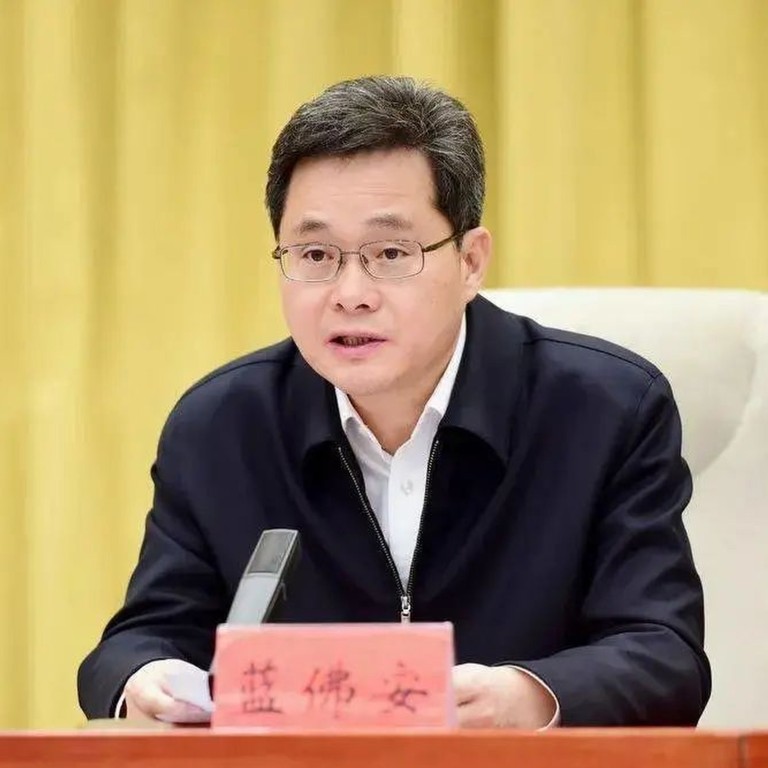Sonali Ray, writer
Brief news
- China’s Finance Minister announced potential expansion of debt and deficit, indicating room for growth but no immediate fiscal support disclosed.
- Local governments may utilize special bonds for land and affordable housing subsidies, with possible tax reductions for real estate under consideration.
- Analysts predict fiscal stimulus needs between 2 trillion and over 10 trillion yuan, with upcoming parliamentary meetings expected to clarify details.
Detailed news
BEIJING— During a press event that was widely anticipated, China’s Minister of Finance Lan Fo’an stated to reporters on Saturday that the central government has the ability to expand both the debt and the deficit.
He stressed that there is “rather large” room for a growth in the deficit, but he also mentioned that such measures are still being discussed, as stated by the translation of the Chinese that was provided by CNBC.
But Beijing has yet to disclose any additional fiscal support, despite the fact that economists have insisted that China requires it. Many investors and analysts had expressed optimism that China was preparing to introduce a significant new stimulus package in the days preceding the briefing.
Lan indicated that the weekend briefing was not the conclusion, that additional stimulus is imminent, and that the debt or deficit adjustments that markets have been anticipating may occur in the near future. It is still uncertain whether the magnitude of any such stimulus would align with market expectations or how much would be allocated to real estate or consumption.
On Saturday, the finance ministry also delineated policy measures that were designed to resolve the debt issues of local governments, stabilize the real estate market, and promote employment.
According to CNBC’s translation of the Chinese, Vice Minister of Finance Liao Min stated at the same press conference that the finance ministry will permit local governments to utilize special bonds for land acquisitions and to allocate affordable housing subsidies to existing housing inventory, rather than solely to new construction.
In addition, he stated that the government was contemplating the possibility of reducing real estate-related taxes. He did not provide specific figures and noted that the support of real estate necessitated the implementation of multiple policies.
“These policies are in the correct direction,” stated Zhiwei Zhang, president and chief economist at Pinpoint Asset Management, in a note issued on Saturday. He also stated that the market will concentrate on the influence of these policies on the macro outlook in the upcoming months, and additional information is required to assess their effects.
Authorities had advocated for the reinforcement of fiscal and monetary policy support during a meeting in late September, which was chaired by Chinese President Xi Jinping. However, they did not outline the specifics.
The amount of fiscal stimulus required is predicted by analysts to vary between approximately 2 trillion yuan ($283.1 billion) and over 10 trillion yuan..
Ting Lu, the chief China economist at Nomura, had issued a warning in a note on Thursday that any such intervention would typically necessitate the consent of China’s parliament, which is anticipated to convene later this month. He further stated that the manner in which any funds are allocated is equally significant as the quantity that is provided, regardless of whether they are exclusively allocated to the stabilization of local government finances or are directed toward increasing consumption.
The real estate downturn in China has shown few signs of turning around, and the country’s retail sales have only grown marginally over the last few months. The first quarter of 2024 saw a 5.3% increase in GDP, while the second quarter saw a 4.7% increase. This has raised concerns that China may not achieve its full-year target of approximately 5%.
The National Bureau of Statistics is scheduled to disclose the third-quarter GDP on Oct. 18, and all eyes are currently on this date.
Bruce Pang, the chief economist and director of research for Greater China at JLL, stated that he is anticipating the release of additional information at a parliamentary meeting scheduled for later this month. He further stated that it would be “reasonable and practical” to maintain a certain amount of dry powder in anticipation of unforeseen difficulties.
A stimulus-fueled rally lost steam after markets reopened on Tuesday following a weeklong holiday. Consequently, mainland Chinese equities were volatile throughout the week. The main indexes returned to the levels observed in late September as a result of the declines.
Stocks had surged at that time, with the CSI 300 experiencing its most successful week since 2008, as significant policy announcements indicated that the Chinese government was finally intervening to stimulate declining development.
The People’s Bank of China reduced a few of its interest rates and extended existing real estate support measures by two years, just days after the Federal Reserve initiated its easing cycle. Additionally, the PBOC implemented a program that enabled institutional investors to borrow funds for stock investments, the total value of which was approximately $71 billion.
In a rare press conference on Tuesday, the National Development and Reform Commission, the premier economic planning agency, committed to expediting the utilization of 200 billion yuan that was originally set aside for investment projects in the upcoming year. Additional stimulus was not disclosed by the NDRC.
In China, Saturday is a working day; however, markets are closed.
Source : CNBC News




